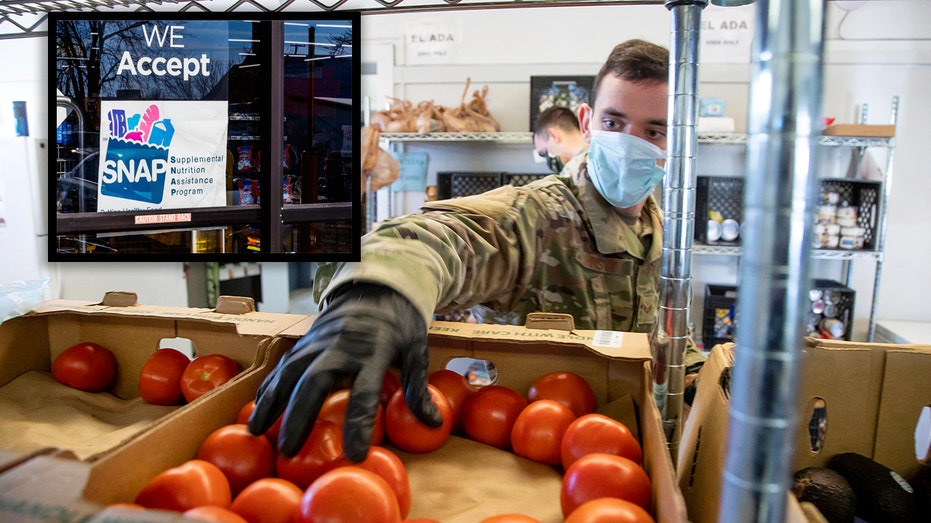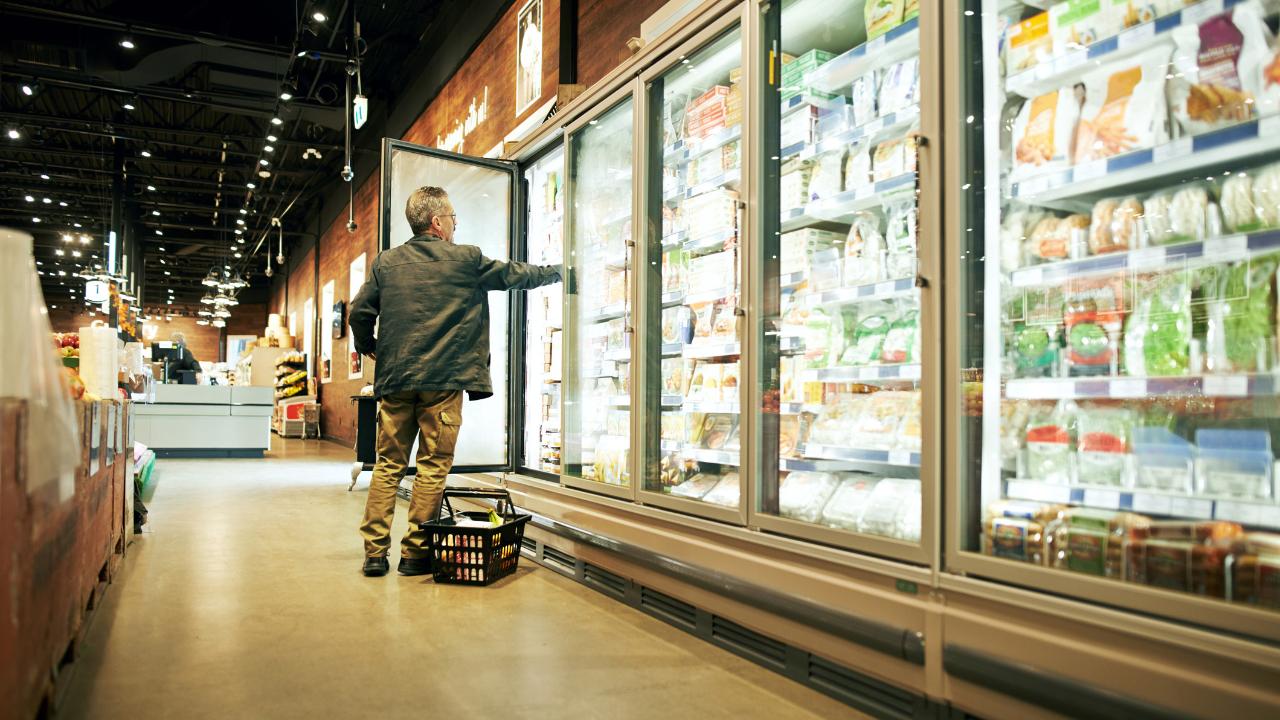How to apply for SNAP
How Americans can access the food stamp program during coronavirus pandemic
Get all the latest news on coronavirus and more delivered daily to your inbox. Sign up here.
State governments and activists across the U.S. are asking the U.S. Department of Agriculture to make it easier for people to access Supplemental Nutrition Assistance Program (SNAP) benefits -- formerly known as food stamps -- as millions of Americans who have lost their jobs during the coronavirus pandemic are in need of government support.

Senior Airman Nicholas Christy helps fill a grocery order for a family at St. Vincent de Paul's food pantry Saturday, April 4, 2020, in Boise, Idaho. (Darin Oswald/Idaho Statesman via AP)
With many Americans buying groceries online to avoid spreading and contracting COVID-19, only six states in the U.S. are allowing SNAP recipients to do so, leaving the others with no other choice than to leave their homes to shop at a greater risk.
GOVERNORS PUSHING FOR FOOD STAMP FLEXIBILITY
How to apply
SNAP helps low-income individuals purchase the food they need for themselves and their families. SNAP benefits are not cash and are instead provided on an electronic card that is used like an ATM card to buy food at most supermarkets. To qualify, a person's income must be under certain limits.
SNAP is administered by the USDA Food and Nutrition Service program. To apply, applicants can visit the USDA’s website for a directory with a national map. Click on your state to find contact information for its SNAP office.
Each state has its own application form, which can be found online. If you can’t find your state’s form online, call your local SNAP office and request one. Each state’s local office numbers are also listed in the state or local government pages of the telephone book under “Food Stamps,” “Social Services,” “Human Services,” “Public Assistance” or a similar title.
NEW FOOD STAMPS RULE LEAVES STATES SCRAMBLING TO PREPARE FOR CHANGE
When applying, be sure to have the following items on hand: proof of identities such as a photo ID, birth certificate or Social Security card and Social Security numbers for all household members. Proof of living expenses such as rent, lease or mortgage is also necessary.
Nearly half of all kids who attend U.S. public schools rely on free or reduced-price meals. Parents can check with their local jurisdiction to find school districts that are providing free meals for children and their families to pick up and take home during the COVID-19 quarantine.




















